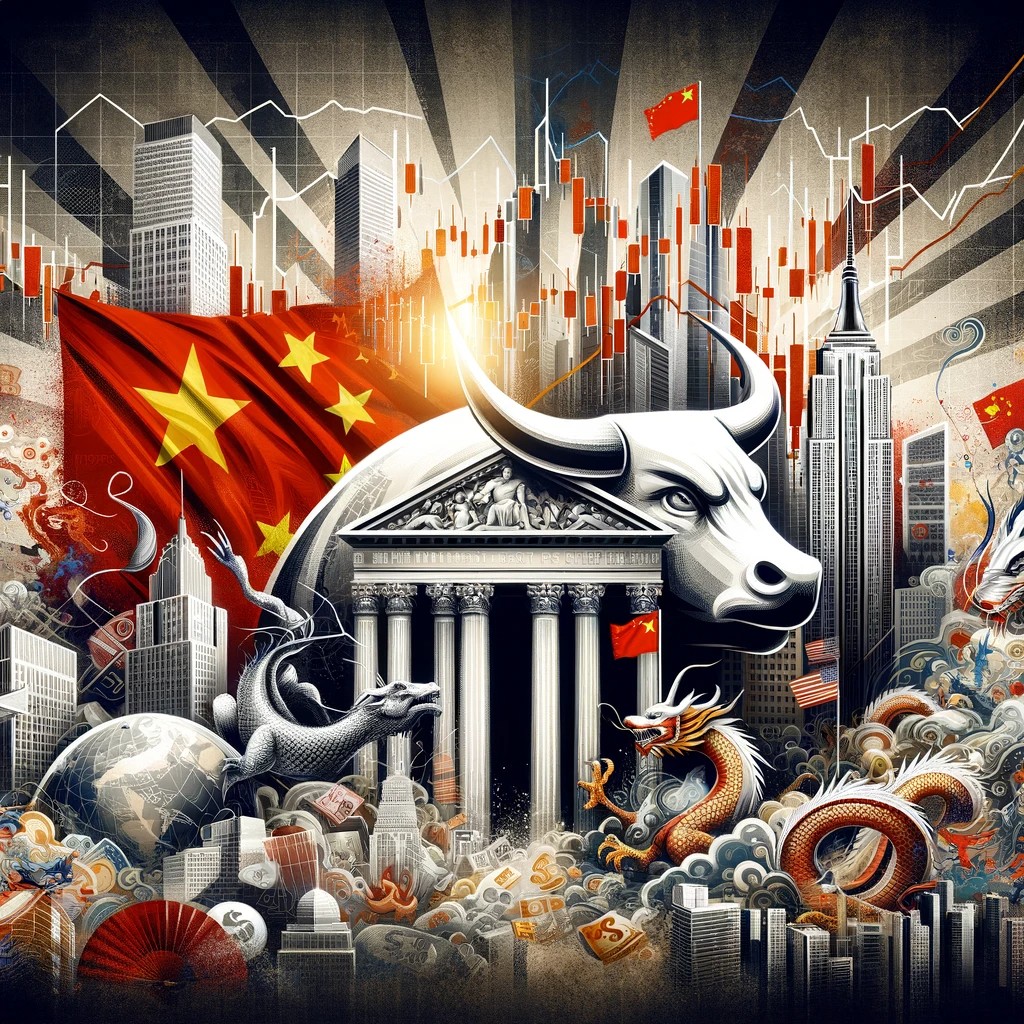Wall Street’s largest financial institutions have recently adopted a cautious approach to taking Chinese companies public, a shift driven by an intricate dance of appeasing Beijing while navigating global market dynamics. This cautiousness stems from a significant, albeit subtle, alteration in the language used in IPO prospectuses, especially in the context of risk disclosures. But what lies beneath this linguistic tightrope walk, and why is Wall Street treading so carefully?
The Subtle Art of Wording
Delve into any recent IPO prospectus of a Chinese company, and you’ll notice a change in tone. Where once stark, direct warnings about the risks of China’s regulatory environment were commonplace, now the language is more about the evolution and interpretation of Chinese laws. This isn’t mere wordplay; it’s a strategic shift. Following China’s crackdown on technology and education sectors, wiping billions off internationally listed companies’ values, the stakes have never been higher.
Consider the case of Wuxi Biologics and its subsequent spin-off, Wuxi XDC. In 2017, Wuxi Biologics’ prospectus, worked on by heavyweights like Bank of America and Morgan Stanley, didn’t shy away from criticizing the Chinese regulatory landscape. Fast forward to Wuxi XDC’s 2021 Hong Kong listing, and the narrative shifts to a more nuanced, less confrontational stance. This isn’t a coincidence. It’s a response to Beijing’s new rules prohibiting disparaging comments about its laws and policies in such filings.
Between a Rock and a Hard Place
This linguistic gymnastics isn’t just about complying with Chinese regulations. There’s a broader picture. Global banks, like Goldman Sachs and JPMorgan, are caught in a vise between satisfying Chinese regulatory demands and adhering to U.S. Securities and Exchange Commission (SEC) calls for clearer risk disclosures related to China’s government. The challenge is finding a middle ground that appeases both.
Take J&T Global Express’s IPO, advised by the likes of Morgan Stanley and UBS. Their prospectus cleverly avoids directly naming China, instead opting for general language about legal systems in their markets. This approach starkly contrasts with Amer Sports’ U.S. listing, which is more forthright about the impacts of Chinese policies.
Wall Street’s increasing unease stems from this balancing act. On one hand, the need to comply with local Chinese regulations; on the other, the imperative to maintain transparency and integrity in the eyes of global investors and U.S. regulators. The upcoming Shein IPO could be a litmus test for how well these financial juggernauts can navigate these choppy waters.
But there’s a deeper, more unsettling question at play. If U.S. firms in Hong Kong can’t put together IPO filings without tiptoeing around Beijing’s sensibilities, can Hong Kong maintain its status as an international financial hub? This isn’t just about finance; it’s a question of geopolitical influence and the shifting sands of global power dynamics.
The Ripple Effect on Global Markets
Wall Street’s caution reflects a broader anxiety permeating global markets. China’s increasing assertiveness in regulating its corporations and the consequential impacts on their international listings aren’t just about paperwork. They signal a fundamental shift in how global finance interacts with Chinese businesses. This isn’t just Wall Street being skittish; it’s a barometer of the global economic climate.
When Chinese companies list overseas, the language used in their prospectuses isn’t just legalese; it’s a reflection of their operating environment. By toning down the rhetoric, Wall Street banks are not just complying with Chinese regulations; they’re acknowledging the growing complexity and unpredictability of doing business with China. This shift isn’t about bowing to Beijing; it’s a pragmatic response to an evolving economic landscape.
Wall Street’s apprehension also underscores a growing awareness of the reputational risks involved. In a world where every word in a prospectus can be scrutinized and magnified, no one wants to be the bank that got it wrong, either by angering Beijing or by failing to inform investors adequately. It’s a high-stakes game of diplomatic wordplay, where the rules are constantly changing and the penalties for missteps can be severe.
So, why is Wall Street so terrified of China? It’s not just about regulatory compliance or diplomatic niceties. It’s about navigating a new world order where China’s economic clout and regulatory assertiveness have significant global repercussions. Wall Street’s cautious approach in taking Chinese companies public is a reflection of this new reality. It’s a world where words matter, perceptions are pivotal, and the balance of power is constantly shifting.





